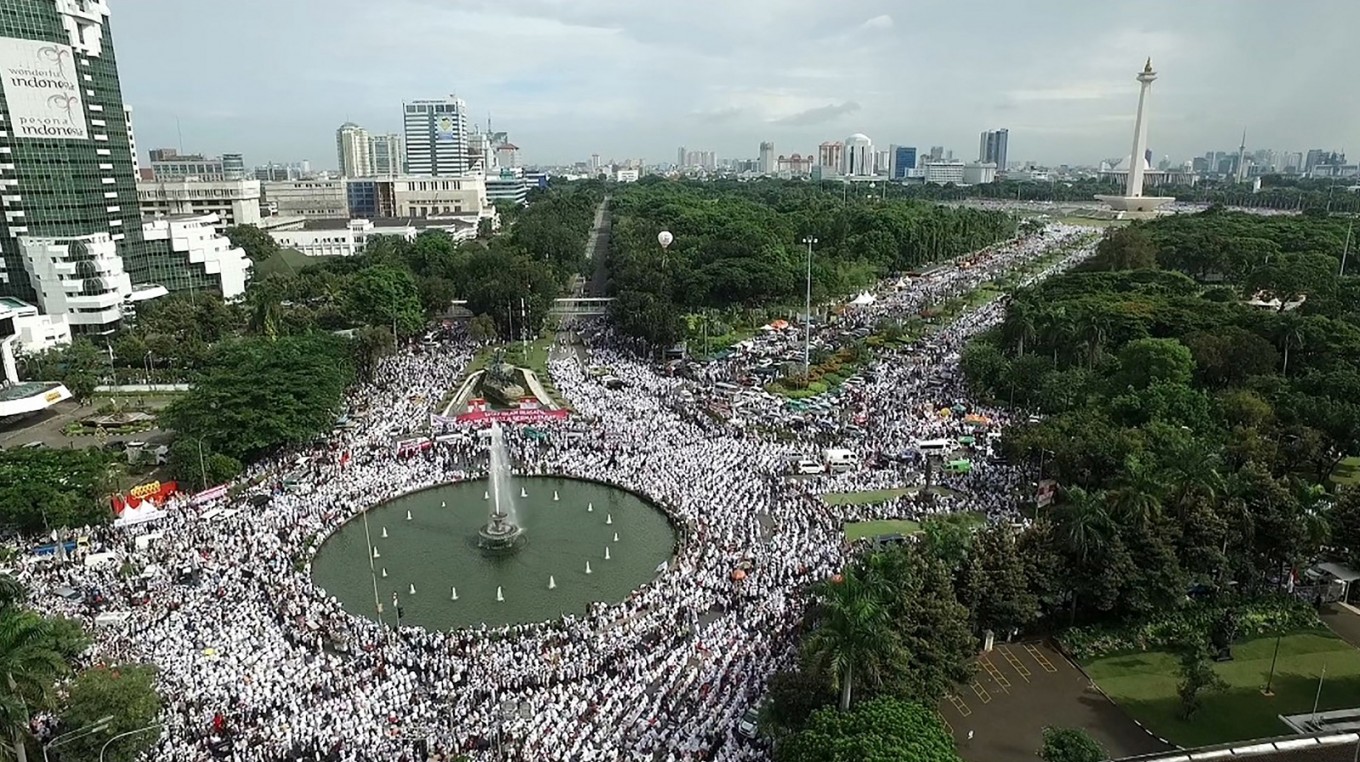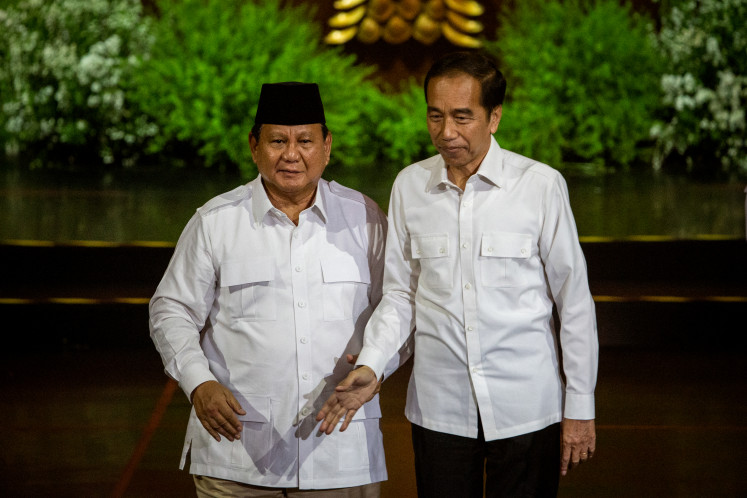Popular Reads
Top Results
Can't find what you're looking for?
View all search resultsPopular Reads
Top Results
Can't find what you're looking for?
View all search resultsScapegoating the 'other' in Southeast Asia
The most egregious examples of this “us against them” tactic are occurring in the Philippines, Myanmar and Indonesia. Although the victims differ, the dynamics of their persecution are similar.
Change text size
Gift Premium Articles
to Anyone
 This aerial view shows Indonesian Muslims gathering at Jakarta's National Monument Park as part of a rally against Jakarta's Christian Governor Basuki Tjahaja Purnama, better known by his nickname Ahok, on December 2, 2016. More than 100,000 Indonesian Muslims protested on December 2 against Jakarta's Christian governor, the second major demonstration in a matter of weeks as conservative groups push for his arrest on accusations of insulting Islam. (AFP/File)
This aerial view shows Indonesian Muslims gathering at Jakarta's National Monument Park as part of a rally against Jakarta's Christian Governor Basuki Tjahaja Purnama, better known by his nickname Ahok, on December 2, 2016. More than 100,000 Indonesian Muslims protested on December 2 against Jakarta's Christian governor, the second major demonstration in a matter of weeks as conservative groups push for his arrest on accusations of insulting Islam. (AFP/File)
T
here is much talk in Southeast Asia about the rise of authoritarianism and the retrenchment of democracy, here intended not only as an electoral system, but most importantly as a governance structure that trusts in the impartial rule of law, encourages stakeholders’ participation in decision-making, respects alternative views and provides protection for minority interests. Paradoxically, those countries with more open election systems appear to be dismissing these core principles as they become besieged by populist and nationalist ideologies.
Identity politics based on ethnic, religious, socio-cultural or gender boundaries is increasingly employed for certain parties to gain popularity, win elections, or simply stay in power. Their strategy is to unify support for them by constructing the perception of a uniform majority with shared characteristics that is threatened by a common enemy to be despised on moral and religious grounds.
The projected “bogeyman” is preferably a people who are already stigmatized, whom the public would not feel compelled to defend due to entrenched and diffuse prejudices. Possible opponents, whether in power or wishing to be, will not challenge the populist rhetoric for fear of losing popularity and thus, votes; and for the few emphatic voices there is always social pressure and public shame to mute them.
The most egregious examples of this “us against them” tactic are occurring in the Philippines, Myanmar and Indonesia. Although the victims differ, the dynamics of their persecution are similar.
In the Philippines, the already stigmatized group of drug users has (literally) become the moving target of President Rodrigo Duterte’s populist promise to protect the nation from the “greatest domestic threat”.
His “war on drugs” involves the extra-judiciary killings of suspected addicts, irrespective of the amount of drugs, their age, or the level of evidence. The police count 3,900 deaths of “suspects that resisted arrest”, but independent sources reckon the police and “unidentified gunmen” killed more than 12,000 persons, mostly young, poor and barely, if at all, involved in drug use or trade.
In the only ASEAN country with no death penalty for drug trafficking, this egregious disregard for the law, let alone human rights, has been made socially acceptable by dehumanizing drugs addicts because of their addiction. In spite of opposition of the powerful Catholic Church and increased international criticism, Duterte continues to proclaim his intentions to boost the war, while failing to deliver on his other promises of addressing poverty, corruption and Manila traffic.

















